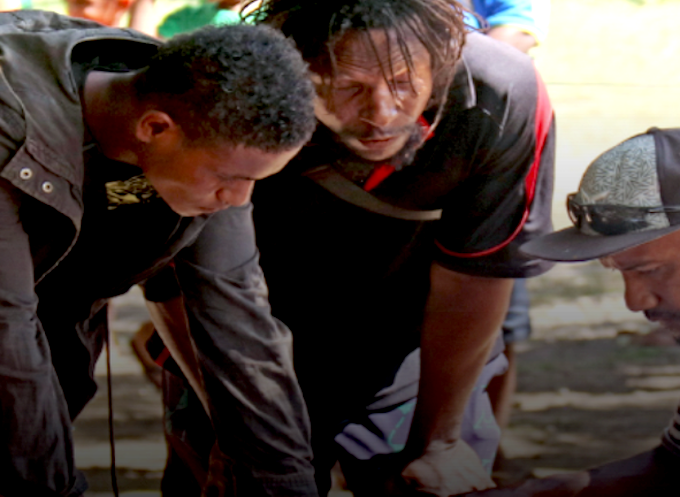
By Frank Rai in Port Moresby
Papua New Guinea went to the polls yesterday to begin electing the 11th national Parliament only to find out that there were names missing on the common roll while some polling stations were short of ballot papers around the country.
The distribution of ballot papers and the common roll update has been an issue over the past few months with the Electoral Commission continuing to provide assurance. But this was not the case yesterday.
In Lae, former four-term Lae MP Bart Philemon was turned away at his Butibam village polling booth because his name was not on the common roll.
Stefan Armbruster reports from Tari on the opening day of the PNG election.
Video: SBS News
“If this can happen in an urban village in Lae city, how can we be sure if people living in the vast remote areas around the country are casting their votes?,” he asked.
“Are they or will they exercise their fundamental democratic right which comes only after 5-years?”
Reports from other centres around the country included East New Britain, Central, Northern, Hela and Morobe provinces also facing the same issues yesterday.
Several locations in Central Province, voters had to argue with polling officials because their names were not on the common roll and these were the voters who had voted in the 2017 general election.
Central provincial police commander Superintendent John Midi confirmed that several commotions between voters and election officers had been reported at various locations in Hiri Koiari electorate.
Voting is underway in #PNG. @StefArmbruster is on the ground – covering his 3rd lot of elections. Bringing context & insight https://t.co/AKuXNW0OPK @GAIGriffith @SBSNews
— Dr Tess Newton Cain (@CainTess) July 4, 2022
‘Explain for peace’
“It is to due to ballot papers and voters which only the PNG Electoral Commission officials assigned to these areas have the powers to explain for peace among people during polling,” Superintendent Midi said.
Meanwhile, Philemon said the Electoral Commission had five years to update the common roll and to ensure that all eligible citizens were listed but it had failed the people of this country.
“I fail to understand the Electoral Commission failing its primary responsibility to update the roll,” he said.
The former MP said the Electoral Commission cannot in uncertain terms deny the fundamental democratic rights of its citizens to elect their leaders which falls every five years.
Philemon said the incompetency of public servants in the government workforce was a contributing factor not only to elections but other issues affecting health, education, transport infrastructure, law and order as well.
Frank Rai is a PNG Post-Courier reporter. Republished with permission.
Voters will elect 118 members of parliament, including governors of the 22 provinces, from the 3,600-plus candidates nominated. https://t.co/9KrQ6tqIlF
— RNZ Pacific (@RNZPacific) July 4, 2022













































